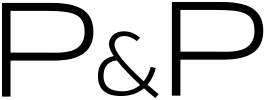How to Make Useful Technology a Part of Everyday Life
The goal of technology is to really make a difference. Yet in practice, the connection among scientific analysis and actual impact can be tenuous. For instance , when experts discover a fresh health hazard, they are often pressured to suppress or perhaps misinterpret the results of their work. All who have vested pursuits in the status quo also are likely to undermine and challenge exploration that threatens their own desired views of reality. For example , the germ theory of disease was initially a controversial idea among medical practitioners, even though the evidence is overwhelming. Similarly, researchers who release findings that discord with a particular business or perhaps political interest can confront unreasonable critique or even censorship from the research community [2].
In his recent essay or dissertation, Daniel Sarewitz calls for an end to the “mystification” of scientific disciplines and its unimpeachable seat on top of society’s cultural pecking order. Instead, he argues, we ought to shift scientific discipline to be focused useful science in solving sensible problems that directly affect people’s lives. He shows that this will help to cut back the number of medical findings that are deemed untrustworthy, inconclusive, or just plain wrong.
In his book, The Science of Liberty, Broadbent writes that it is important for all visitors to have a grasp on the process by which scientific research works for them to engage in critical thinking about the facts and implications of different views. This includes knowing how to recognize any time a piece of scientific disciplines has been more than or underinterpreted and preventing the temptations to judge a manuscript by impractical standards.

